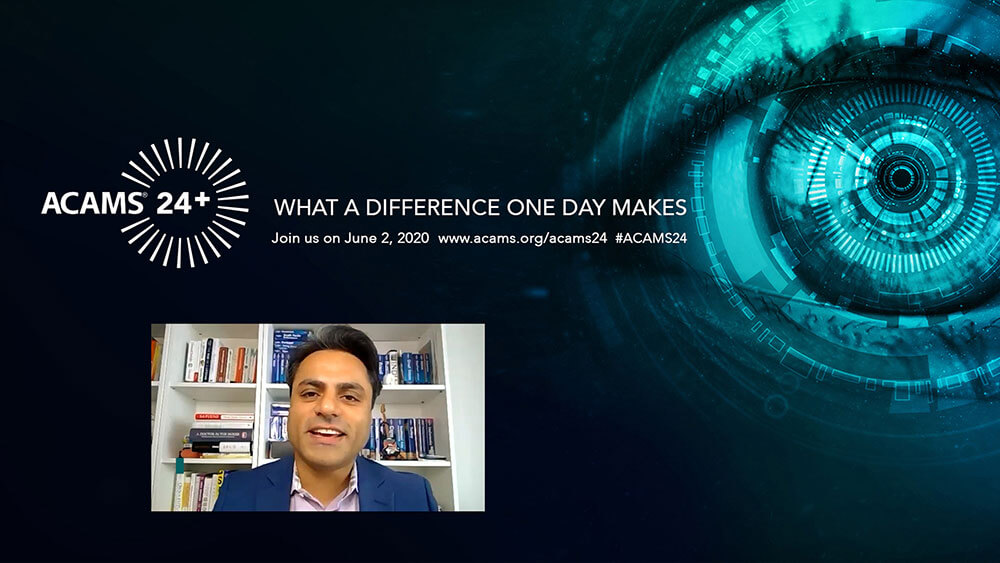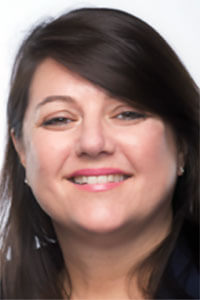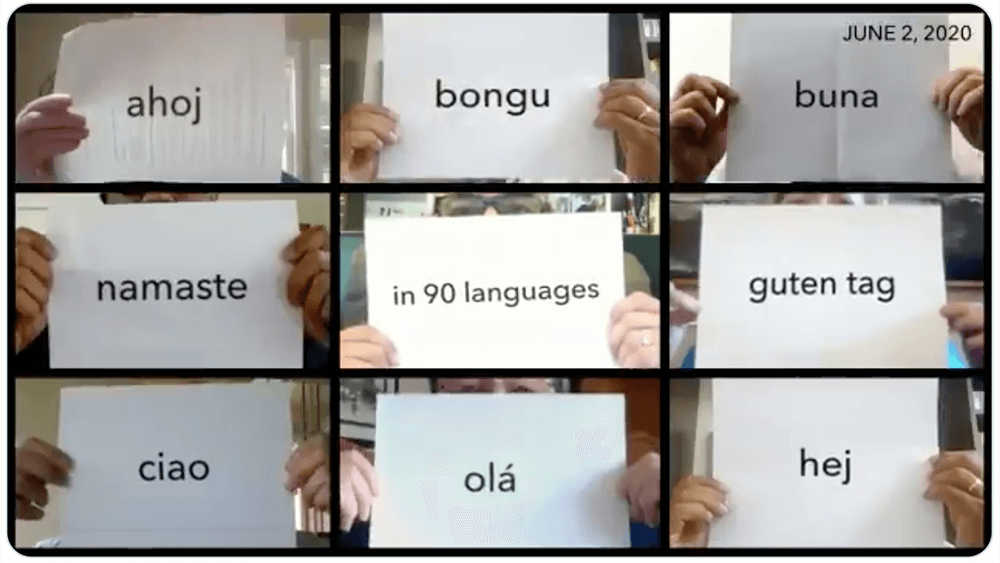
Rohit Sharma, former ACAMS president, features in one of the promotions for a 24-hour virtual training marathon on June 2. The ACAMS communications and marketing team built buzz in advance, focusing on the unique, day-long format.
As Zoom fatigue settles in, planners are learning that igniting interest in their virtual gatherings is requiring an increasing amount of creativity and finesse. One approach has been to spread sessions out over a few days and keep them short. The Association of Certified Anti-Laundering Money Specialists (ACAMS) took the opposite tack: a 24-hour virtual training marathon that successfully brought together more than 3,000 of its members from more than 100 countries.

Kristin Mirabal
Held on June 2, ACAMS24+ created a space for conversation around how the COVID-19 pandemic is affecting financial crime compliance practitioners in addition to offering members a chance to earn continuing education credits. That meant coordinating — and recording — a packed 24-hour schedule of 70-plus speakers from around the world. True to the marathon theme, attendees could tune into a continuous, 24-hour stream of content — and a few actually did, making a game out of who could stay up the longest. But to make the schedule work for everyone, ACAMS staggered sessions, timing those relevant to a particular region to that area’s regular business hours.
“It was not without a lot of sleepless nights,” said Kristin Mirabal, director of global events for ACAMS. Her team had just five weeks to cobble together the event, which was unique in that it gave their entire global membership a chance to meet, virtually, for the first time. “In the past, webinars have been commonplace for ACAMS, but we knew we needed to do something more robust. It needed to be a truly global event,” Mirabal said. “Having an event that would cross all of the time zones, address important topics — some that are regionally focused, and some of a global nature — would address that entire audience.”
Recording the panels required the most legwork. Available on-demand up to 30 days after the event, panels featured live and archived captioning in 90 languages as well as simultaneous audio translations in 40 languages. One problem they didn’t anticipate is how long it would take to record these sessions and just how much preparation that involved. “Trying to get everyone online, and then it’s, ‘Okay, we can’t hear you, can we try that again?’” Mirabal said. “Just because it’s a 45-minute session, don’t think that it’s going to take 45 minutes.” She advises setting aside ample time prior to recording for sound checks and ensuring that presenters and moderators can log into the platform — especially if they are tuning in from other countries, where connections and bandwidth may vary.

ACAMS’ 24-hour virtual training marathon was translated into 90 languages.
The ACAMS communications and marketing team promoted the event in advance as much as possible, building buzz around the novelty of a 24-hour-long event. Mirabal’s team also focused on how to increase engagement between attendees during the event. A surprising success was the live chat feature, which allowed attendees to post comments and ask presenters questions, unmoderated. “You’re taking a little bit of a risk when you do that, because of the uncertainty of what people might say,” Mirabal said, like criticizing speakers, for instance. “But it ended up being one of the best features in that, people were engaging with each other and talking among themselves.” She adds that attendees were also keen to share where they were tuning in from, how long they had been tuned in, as well as funny photos of themselves in pajamas or drinking their fourth cup of coffee.
Attendance at ACAMS24+ was on par with the association’s annual AML & Financial Crime Conference, its flagship North American event in Las Vegas, but the global reach of the virtual event surprised Mirabal the most. “That was one of the best outcomes we could have had,” she said. “We wanted the representation from our global audience, in bringing together people that couldn’t have normally come together.”
